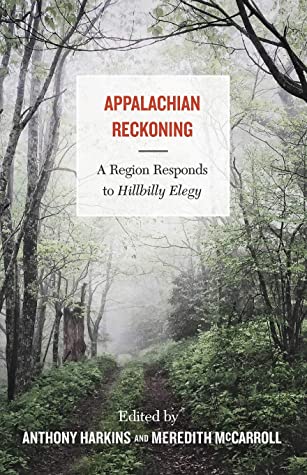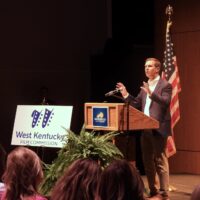An anthology meant to rebut J.D. Vance’s controversial 2016 memoir “Hillbilly Elegy” has been recognized as one of this year’s best non-fiction books about Appalachia.

“Appalachian Reckoning: A Region Responds to Hillbilly Elegy,” edited by Anthony Harkins and Meredith McCarroll, was named the winner of the 2020 Weatherford Award in the nonfiction category on March 6.
The awards have been granted by Berea College and the Appalachian Studies Association for the past 50 years in memory of W.D. Weatherford Sr., a pioneer and leading figure in Appalachian development, youth work and race relations, and his son, Willis D. Weatherford Jr., Berea College’s sixth president.
- SUBSCRIBE: Sign up for Hoptown Chronicle’s newsletters
“Appalachian Reckoning,” according to the Weatherford Awards website, “is grounded in accessible essays that critique the continued national manipulation of escape stories like Vance’s that are associated with the region.”
Its “wide variety of writing styles and authors (nonacademic, activists, artists, creative writers) show a region that fosters diverse lived experiences, which cannot be represented by a single voice or narrative. Going beyond binary choices and judgments, the collection displays the region’s rich spectrum of ethnicity and race, economic activity and creativity.”
The anthology “presents the most sustained pushback to Vance’s book (soon to be a Ron Howard movie) thus far. It’s a volley of intellectual buckshot from high up alongside the hollow,” according to The New York Times review.
The Weatherford Award for fiction went to “Any Other Place,” Michael Croley’s collection of short stories about characters who live in rural Eastern Kentucky, Ohio, and South Korea. The poetry award went to Rose McLarney’s “Forage,” which explores the “intimate and threatened interconnection of the land and its waters, people, animals and terrain,” according to the Weatherford website.
The Rural Blog is a publication of the Institute for Rural Journalism and Community Issues based at the University of Kentucky.






